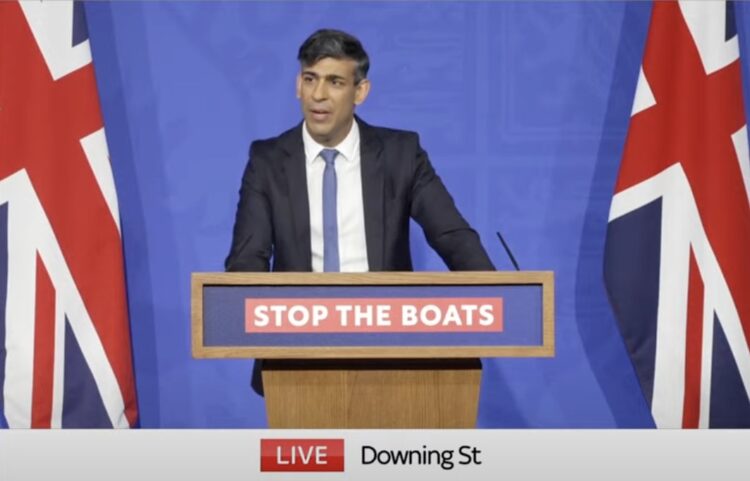After a protracted battle in the UK Parliament, a divisive bill granting the government authority to transfer asylum seekers to Rwanda for processing has finally been approved. Prime Minister Rishi Sunak faced staunch opposition both within Parliament and from human rights activists, who challenged the legislation on grounds of fundamental rights.
Sunak’s struggle to enact the policy has been marred by significant setbacks, leading to considerable embarrassment for the British government. Despite allocating substantial funds to Rwanda for the initiative, it has yet to yield any tangible results.
The bill aims to dissuade irregular migration into the UK, particularly through perilous journeys across the English Channel facilitated by criminal networks. Under the legislation, asylum seekers arriving in the UK may be redirected to Rwanda for assessment. If their claims are accepted, they will remain in Rwanda; however, if rejected, provisions state they cannot be deported elsewhere except to the UK, though the repercussions of such a scenario remain unclear.
Two years since its inception, the scheme’s failure to execute any deportations has been deemed a significant setback for Sunak, who had prioritized curbing small boat crossings. The UK Supreme Court’s ruling last year declared the policy unlawful, citing concerns over the risk of ill-treatment and Rwanda’s human rights record.
In response, the government introduced the Safety of Rwanda (Asylum and Immigration) Bill earlier this year, affirming Rwanda as a safe country despite judicial objections. Home Secretary James Cleverly announced the bill’s passage, emphasizing its role in preventing misuse of human rights claims to obstruct deportations and asserting UK parliamentary sovereignty.
Nevertheless, the legislation may face legal challenges in the European Court of Human Rights, given the UK’s status as a signatory to the European Convention of Human Rights. The bill’s progression has been hampered by prolonged debates and amendments between the House of Commons and the House of Lords, a process colloquially known as “ping pong.”
Despite its passage, the bill’s impact on reducing illegal migration remains uncertain, considering the scale of overall net migration figures. This poses a political dilemma for Sunak and the Conservative Party, especially ahead of an impending general election. Moreover, the significant financial investment in the Rwanda policy opens Sunak to criticism from both ends of the political spectrum.
The Labour Party, positioned as the likely victor in the upcoming election, has vowed to repeal the policy if it assumes power, underscoring the contentious nature of the legislation and its implications for UK immigration policy.

















Comments